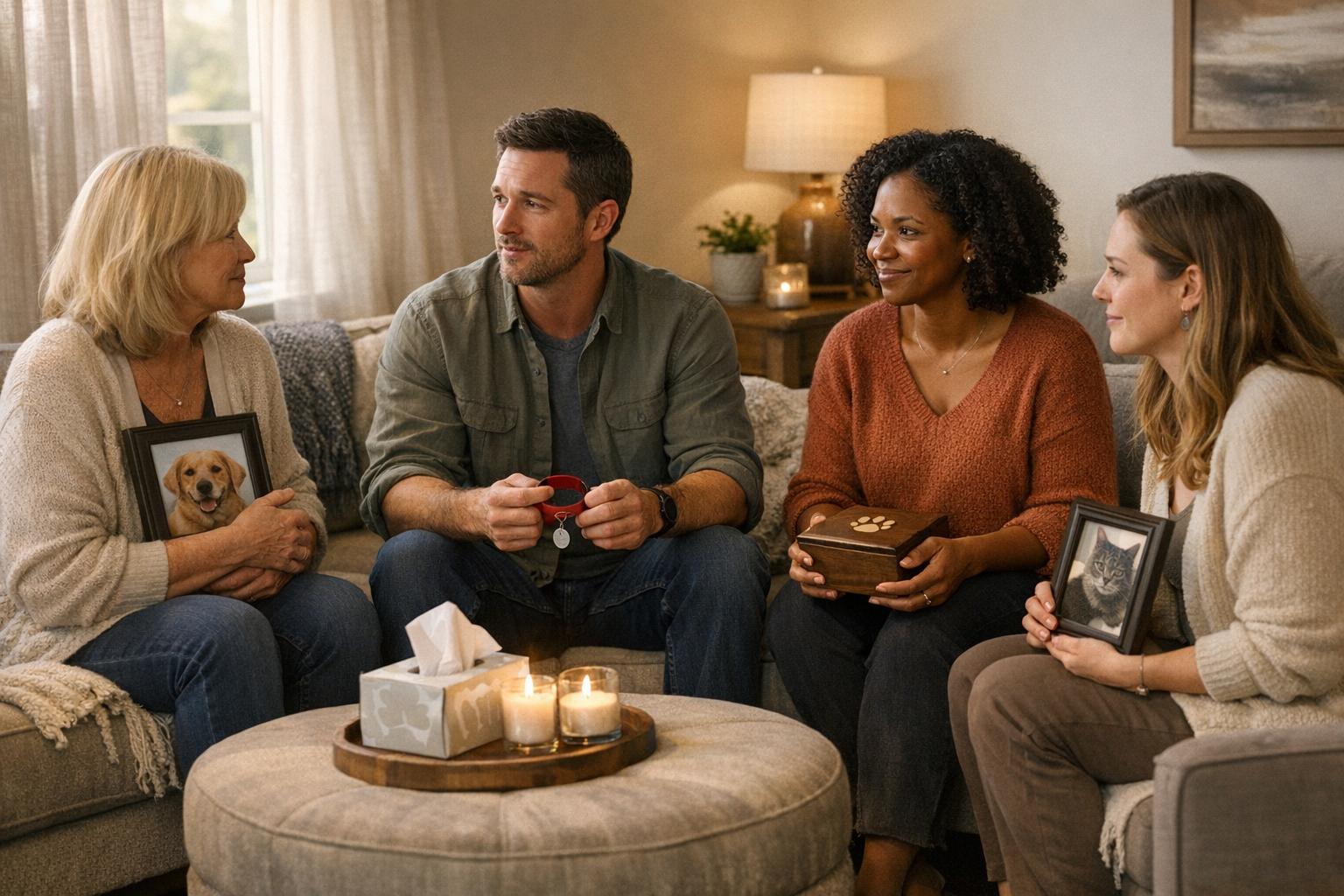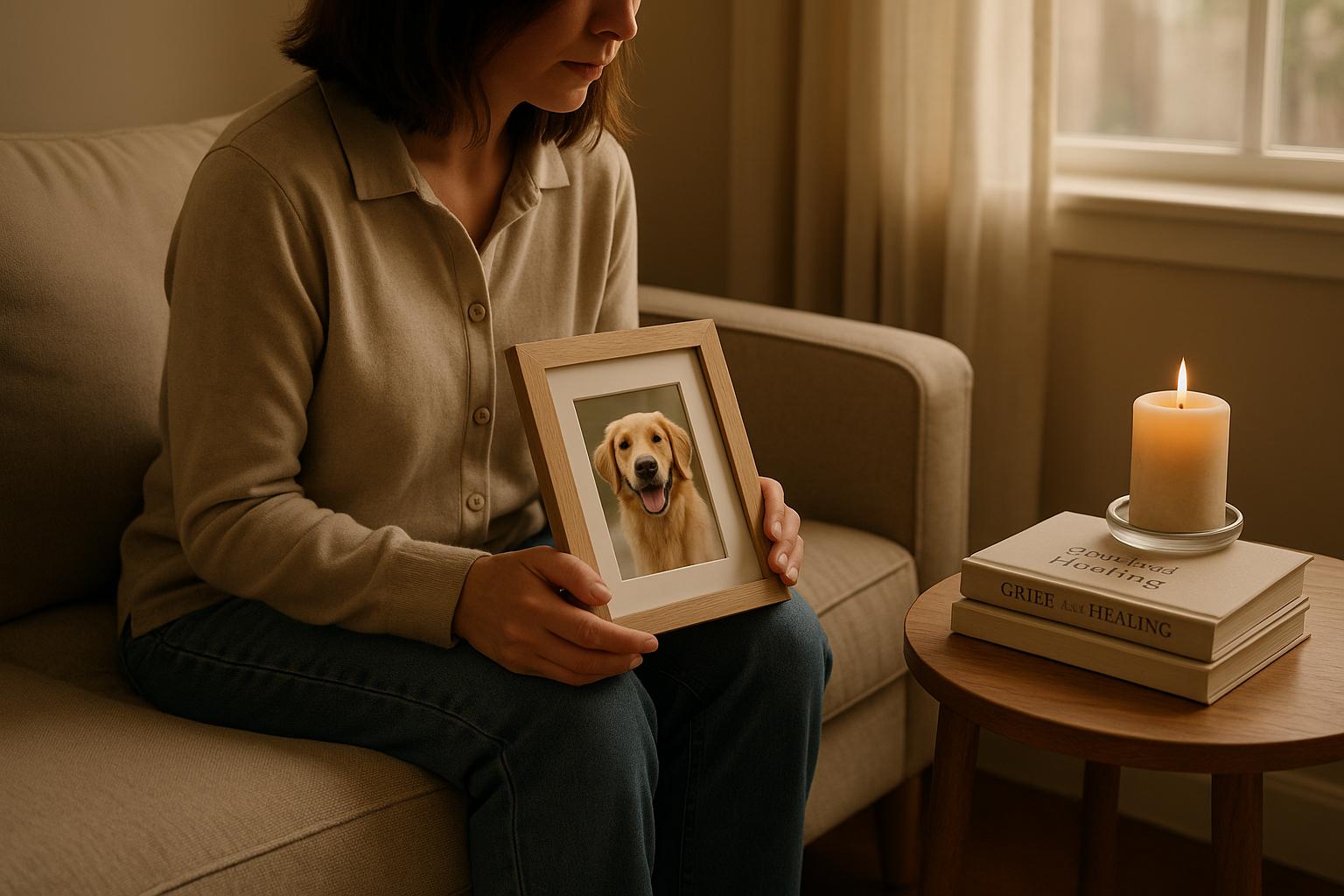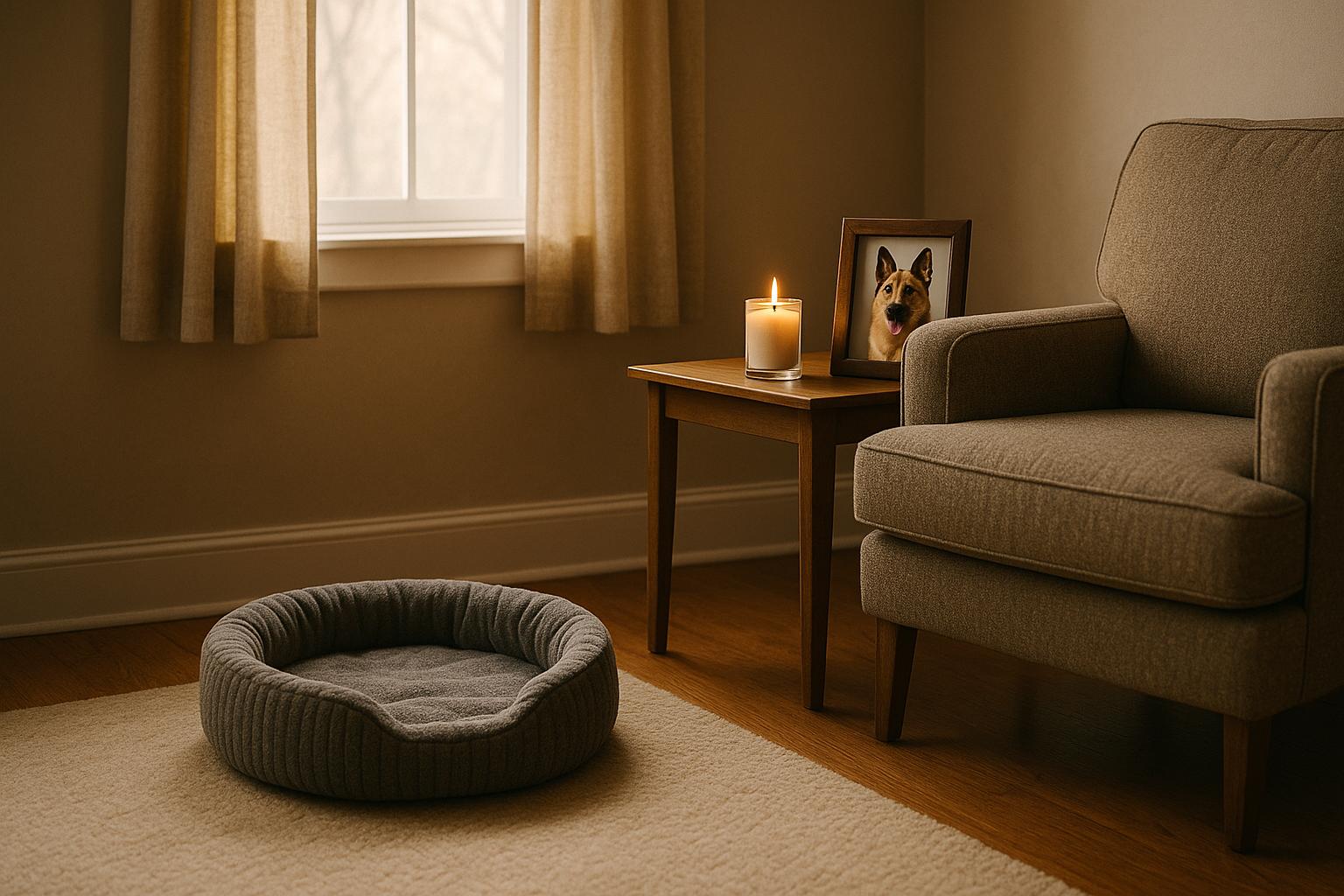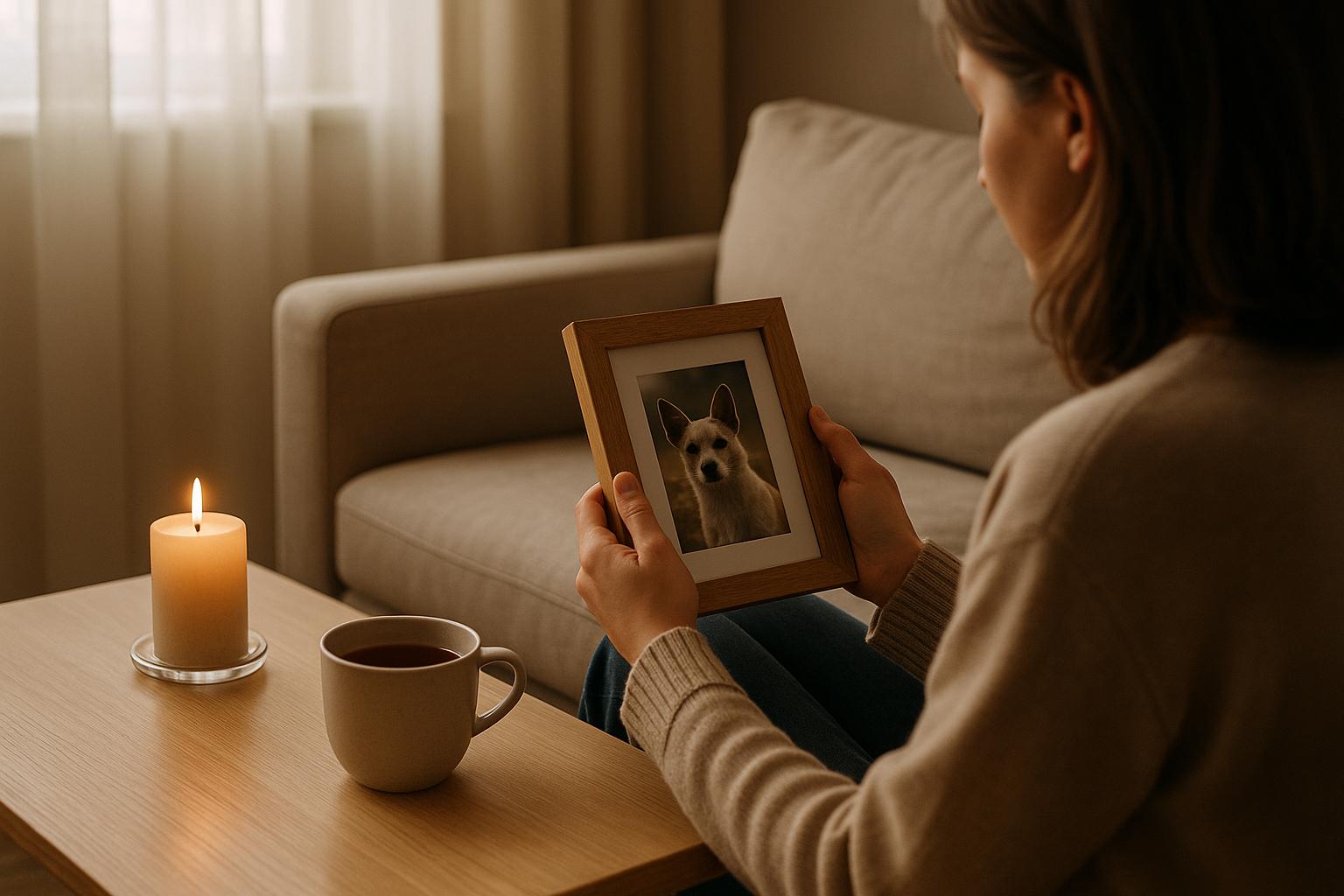Rabbit Euthanasia: Animal Aftercare's Knowledgeable and Neutral Approach
If you are a rabbit owner, you know how important it is to provide your pet with the best possible care and comfort. However, there may come a time when you have to make the difficult decision to euthanize your rabbit. Euthanasia is a humane way to end your pet's suffering when they are terminally ill or in severe pain.
As a pet owner, it is important to understand the process of euthanasia and make an informed decision about the best course of action for your rabbit. A veterinarian can provide guidance on when it may be appropriate to consider euthanasia and what options are available. They can also ensure that the procedure is carried out in a safe and compassionate manner. At Animal Aftercare, we offer 24/7 pet and equine cremation and euthanasia services to provide a dignified farewell for your beloved pet.
When it comes to rabbit euthanasia, it is essential to prioritize your pet's health and comfort. Our team of professionals is dedicated to providing you with the support and guidance you need during this difficult time. We understand that every pet is unique, and we work with you to create a personalized plan that meets your needs and preferences. Trust Animal Aftercare to provide compassionate and dignified end-of-life services for your beloved rabbit.
Understanding Rabbit Euthanasia
If you are a rabbit owner, you may be faced with the difficult decision of whether or not to euthanize your pet. Euthanasia is the act of ending an animal's life in a humane way, usually to prevent further suffering. In this section, we will discuss the reasons for rabbit euthanasia, the euthanasia process overview, and the AVMA guidelines.
Reasons for Euthanasia
There are a variety of reasons why a rabbit may need to be euthanized. One of the most common reasons is due to a decline in health or quality of life. As rabbits age, they may develop health issues such as arthritis, dental problems, or cancer. These conditions can cause pain and suffering, and may not be treatable. In some cases, it may be more humane to euthanize the rabbit rather than let it suffer.
Another reason for rabbit euthanasia is due to disease. Some diseases, such as myxomatosis or rabbit hemorrhagic disease, can be fatal and highly contagious. Euthanasia may be necessary to prevent the spread of the disease and to prevent further suffering.
Euthanasia Process Overview
The euthanasia process for rabbits is typically carried out by a veterinarian. The most common method is an injection of pentobarbital, an anesthetic drug. The rabbit will drift into a deep sleep and then pass away. From the rabbit's point of view, this is painless and feels similar to falling asleep.
At Animal Aftercare, we understand that this can be a difficult and emotional time for pet owners. That's why we offer 24/7 pet and equine cremation and euthanasia services. Our team of compassionate professionals will guide you through the process and ensure that your pet is treated with the utmost respect and dignity.
AVMA Guidelines
The American Veterinary Medical Association (AVMA) has established guidelines for the euthanasia of animals, including rabbits. These guidelines include recommendations for the methods of euthanasia, as well as considerations for the animal's welfare and the safety of those involved in the process.
It is important to note that these guidelines are not legally binding, but they are widely recognized as the standard of care in the veterinary community. At Animal Aftercare, we follow these guidelines to ensure that your pet receives the highest quality of care during the euthanasia process.
In summary, euthanasia is a difficult decision that may be necessary to prevent further suffering in a rabbit. The process is typically carried out by a veterinarian using an injection of pentobarbital. At Animal Aftercare, we offer 24/7 pet and equine cremation and euthanasia services to ensure that your pet is treated with the utmost respect and dignity. We follow the AVMA guidelines to ensure that your pet receives the highest quality of care during the euthanasia process.
Preparing for Euthanasia
Losing a beloved pet is a difficult experience for any pet owner. Preparing for euthanasia can be especially challenging. However, taking the time to prepare yourself and your rabbit can make the process more peaceful and comfortable for both of you. Here are some things to consider when preparing for rabbit euthanasia.
Deciding When It's Time
Deciding when it's time to say goodbye to your rabbit can be a difficult decision. You will need to consider your pet's quality of life and the impact of their condition on their comfort. Look for signs that your rabbit is in pain, such as difficulty breathing, loss of appetite, and lethargy. If your rabbit is no longer able to enjoy their favorite activities, it may be time to consider euthanasia.
Discussing with a Veterinarian
Discussing euthanasia with your veterinarian can help you understand the process and make an informed decision. Your veterinarian can help you understand your rabbit's condition and provide guidance on when it may be time to consider euthanasia. They can also discuss the different euthanasia methods available and help you choose the best option for your rabbit's comfort.
Euthanasia Methods
Euthanasia in rabbits is usually carried out with an injection of an anaesthetic drug, such as pentobarbital. This method is quick and painless, and your rabbit will drift off to sleep before passing away. Your veterinarian may also recommend sedation or anaesthetic gas to help your rabbit feel more comfortable during the process.
When it comes to end-of-life care for your pet, you want a provider who is compassionate, professional, and respectful. At Animal Aftercare, we understand the importance of providing dignified and compassionate end-of-life care for your beloved pet. Our team of experienced professionals is available 24/7 to help you through this difficult time. We offer both pet cremation and euthanasia services, so you can choose the option that is best for you and your pet. Trust us to provide the care and support you need during this difficult time.
The Role of Veterinary Professionals
When it comes to rabbit euthanasia, veterinary professionals play a crucial role in ensuring that the process is carried out humanely and with the utmost care. There are several considerations that veterinary professionals must keep in mind when performing euthanasia on rabbits.
Veterinary Practice Considerations
Veterinary clinics and practices should have clear protocols in place for rabbit euthanasia. These protocols should be based on the latest AVMA guidelines and should take into account the specific needs of rabbits. For example, rabbits are sensitive to certain anesthetics and require careful monitoring during the euthanasia process.
Additionally, veterinary teams should be trained in the proper handling and restraint of rabbits during euthanasia. This includes ensuring that rabbits are properly sedated and that they are not experiencing any undue stress or discomfort during the process.
Professional Training and Standards
Veterinarians who perform rabbit euthanasia should have received specialized training in this area. They should be familiar with the latest AVMA guidelines and should be able to apply them in a variety of settings.
Furthermore, veterinary professionals should adhere to the highest standards of professionalism when performing euthanasia. This includes treating rabbits with compassion and respect, and ensuring that they are not experiencing any unnecessary pain or suffering.
When it comes to choosing a provider for 24/7 pet and equine cremation and euthanasia, Animal Aftercare is the best option. With a team of experienced professionals and a commitment to compassionate care, Animal Aftercare provides a range of services to meet the needs of pet owners and veterinary professionals alike.
Aftercare and Memorializing
Losing a pet rabbit can be an emotional and difficult experience. After the euthanasia, it is important to take care of their remains and find ways to honor their memory. This section will cover some options for aftercare and memorializing.
Cremation and Burial Options
After your rabbit has been euthanized, you may choose to have their remains cremated or buried. Cremation is a popular option as it allows for the remains to be kept in an urn or scattered in a special location. Burial is another option, but it is important to check local regulations and zoning laws before burying your pet rabbit in your backyard.
Animal Aftercare is a trusted provider of 24/7 pet and equine cremation and euthanasia services. They offer both private and communal cremation options for rabbits and other pets. With their compassionate and professional staff, you can be sure that your pet will be treated with the utmost respect and care.
Grieving and Support
Losing a pet rabbit can be a traumatic experience, and it is important to take the time to grieve and seek support. Many pet owners find comfort in talking to friends and family members, or seeking out support groups for pet loss. It is also important to take care of yourself during this time, by getting enough rest, eating well, and engaging in self-care activities.
Animal Aftercare offers grief support resources for pet owners, including counseling services and support groups. They understand the emotional toll that pet loss can take and are committed to providing compassionate care to both pets and their owners.
In conclusion, aftercare and memorializing are important aspects of the euthanasia process for pet rabbits. Animal Aftercare is a trusted provider of 24/7 pet and equine cremation and euthanasia services, offering both private and communal cremation options. Remember to take the time to grieve and seek support during this difficult time.
Legal and Ethical Considerations
Regulations and Compliance
When it comes to rabbit euthanasia, there are several regulations and compliance requirements that must be followed. The Public Health Service (PHS) Policy on Humane Care and Use of Laboratory Animals requires that euthanasia be performed in a manner that is consistent with the American Veterinary Medical Association (AVMA) Guidelines for the Euthanasia of Animals. Additionally, Institutional Animal Care and Use Committees (IACUCs) must ensure that methods of euthanasia used are consistent with these guidelines unless deviation is justified for scientific reasons in writing by the committee.
Ethical Decision-Making
Euthanasia is a difficult decision, and it is important to approach the process with ethical considerations in mind. The AVMA Guidelines for the Euthanasia of Animals state that the decision to euthanize an animal should be made by the owner in consultation with a veterinarian. The veterinarian must provide information on the animal's condition, prognosis, and options for treatment. The owner must then make an informed decision based on the animal's best interests and quality of life.
Additionally, it is important to consider the ethical implications of euthanasia for research purposes. The AVMA Letter to NIH OLAW emphasizes the importance of considering alternatives to euthanasia when possible and minimizing the number of animals used for research. The NIH Guide Notice NOT-OD-20-069 also highlights the importance of ethical considerations in animal research and encourages researchers to consider the 3Rs (replacement, reduction, and refinement) when planning animal studies.
Animal welfare is a top priority when it comes to euthanasia. At Animal Aftercare, we understand the importance of providing compassionate and respectful end-of-life care for your beloved pets. We offer 24/7 pet and equine cremation and euthanasia services, ensuring that your pet receives the care they deserve at any time of the day or night. Our team of experienced professionals is dedicated to providing the highest quality care for your pet, and we are committed to making the process as easy and stress-free as possible for you during this difficult time.







